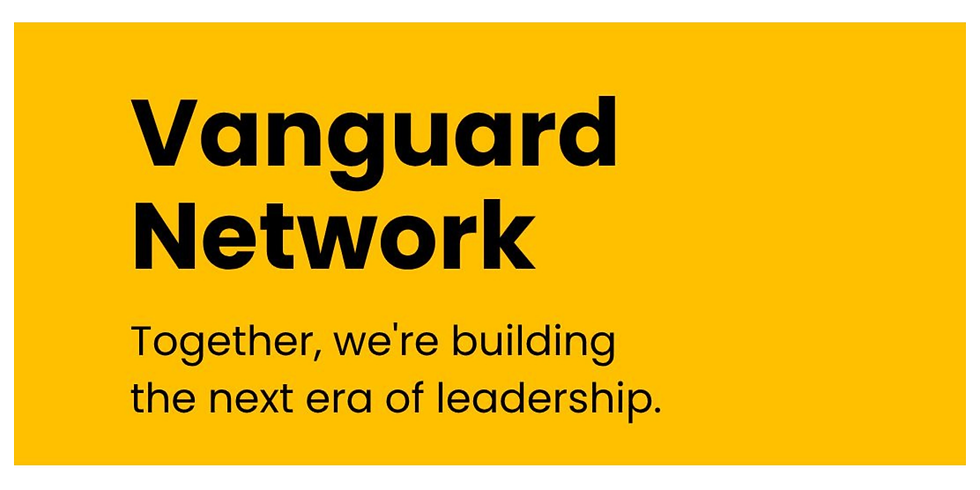Meet Botree's Director of Instructional Design: Pioneering the Future of Learning
- Botree Team

- Apr 11, 2024
- 3 min read
Welcome to our latest blog post where we dive deep into the innovative world of instructional design with Botree's Director of Instructional Design, Jordann. In a candid question and answer session, Jordann shares insights on the future of instructional design, the evolving landscape of leadership in online communities, and the critical intersection of technology with learning.

Jordann started her career in instructional design as an Ontario Certified Teacher receiving her Bachelor of Education from Queen’s University. She then pursued her Master’s of Education with a Graduate Diploma in Post-Secondary Education: Community, Culture and Policy from York University. Focusing her studies and Major Research Project on the confluence of leadership, technology and education, she identified online learning as the future of education but not without its challenges. Determined to contribute to a new horizon for online learning that felt applicable, engaging, interactive and community-driven, Jordann has dedicated her career to exploring the new frontier of elearning. Read on to learn more about her pedagogy (philosophy of learning) and insights on the future.
Q: Can you tell us about the innovative Level Up learning framework you developed at Botree?
A: Absolutely. The Level Up learning framework was born out of a need to adapt our educational methods to the evolving needs of the modern workforce, especially in response to the challenges posed by the pandemic. We merged diverse learning methodologies to create a cohesive structure that promotes sustainable learning and behavioral change. It's all about making learning more effective for dispersed workforces and fostering deep collaboration across generations of leaders.
Q: How have you challenged traditional perceptions of leadership in your work?
A: My work is heavily influenced by the early challenges of online learning communities and the shifting perceptions of leadership within digital landscapes. Through a Masters project on leadership in online learning communities, I realized we're on the brink of redefining what leadership means in the digital age. This revelation has been pivotal in shaping my approach, where I emphasize the mastery of skills in virtual settings and the importance of nurturing digital organizational and social networks.

Q: What do you believe is the future of instructional design?
A: I see the future of instructional design as a blend of physical and digital realities. We're moving towards creating immersive digital platforms that simulate real-world experiences, where failure is a step towards learning and experimentation. This approach will enable learners to build wisdom through trial and error in safe, controlled environments. It's about preparing for a future where the confluence of technology and learning is seamless.
In the near future this will manifest through augmented reality, virtual reality and metaverse technology. In the present day, Botree is working on ‘just in time, just for me, and just enough’ training that leverages QR codes and NFC tags to make training integrated and accessible in your physical surroundings.
Q: How does the concept of the 56 Foundation Skills for the Future of Work fit into your vision?
A: The report released by McKinsey and the World Economic Forum on the 56 Foundation Skills for the Future of Work is a cornerstone of my philosophy. It underscores the importance of adaptability, technology literacy, and social and emotional skills in today’s workforce. My aim is to weave these skills into our learning frameworks, ensuring that our programs not only meet current needs but are also future-proofed against the rapidly evolving work environment.

Q: What’s your advice for leading learning and development design teams in today’s digital-first world?
A: Leading design teams today requires a deep understanding of technology and its potential to enhance efficiency and collaboration. It's crucial to foster an environment where team members feel empowered to experiment and leverage technology in creative ways. This approach not only drives innovation but also ensures that our designs are at the cutting edge of what's possible in instructional design.
Closing Thoughts
As we navigate the changing landscapes of work, learning, and technology, it's clear that instructional design is at the heart of preparing organizations for the future. Jordann's work at Botree exemplifies the forward-thinking required to lead in this new era, blending the physical and digital to create learning experiences that are not only effective but transformative.
We invite you to take a moment to review the learning and development approach within your organization. Is it equipped to meet the challenges of the future? Are you leveraging the 56 Foundation Skills for the Future of Work to ensure your team is prepared for what's ahead? This reflection is not just a call to action; it's an invitation to be part of shaping the future of work and learning.








